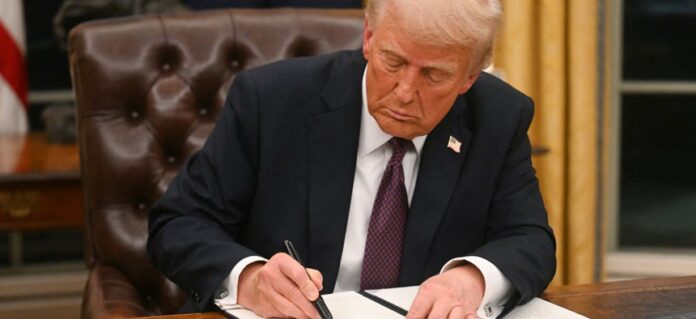President Donald Trump, sworn in for a second term, signed an executive order starting his tenure as president, temporarily pausing U.S. foreign assistance programs for 90 days.
In the oath-taking ceremony held in Washington on January 20, 2025, Trump said the decision was aimed at reviewing whether the aid aligns with his administration’s policy objectives.
“All department and agency heads with responsibility for United States foreign development assistance programs shall immediately pause new obligations and disbursements of development assistance funds,” Trump stated.
“No further United States foreign assistance shall be disbursed in a manner that is not fully aligned with the foreign policy of the President of the United States,” he added.
Uganda has been a significant recipient of U.S. foreign aid, benefiting from initiatives like the President’s Emergency Plan for AIDS Relief (PEPFAR), which has been instrumental in combating HIV/AIDS.
In 2024, the U.S. provided $7.5 million to support Sudanese refugees in Uganda as part of $424 million allocated for Sudan and its neighboring countries. Total U.S. humanitarian aid to Uganda in FY2024 exceeded $92 million.
However, Uganda has already faced aid reductions following the enactment of the Anti-Homosexuality Act (AHA) in 2023. The law prompted international backlash, with the Biden administration suspending support under the Africa Growth and Opportunity Act and reducing funding for health and economic initiatives. Analysts estimate that Uganda has lost up to $1.6 billion annually due to these sanctions, affecting sectors such as foreign direct investment, donor funding, tourism, and trade.
Further cuts could jeopardize critical programs, including support for refugees and HIV/AIDS interventions, potentially exacerbating challenges for vulnerable populations.
Sub-Saharan Africa has traditionally been a significant beneficiary of U.S. foreign aid, with countries like Ethiopia ($2.2 billion), Nigeria ($1.15 billion), and South Sudan ($1.12 billion) receiving substantial funding to address health, food security, and development needs.
Long-standing aid commitments to countries like Israel ($3.3 billion), Egypt ($1.5 billion), and Jordan ($1.7 billion) are unlikely to be affected, as these are tied to treaty obligations and multi-year packages. While the order aims to align foreign aid with Trump’s policy goals, its long-term implications for global development efforts remain uncertain.
Trump’s foreign aid suspension raises concerns about the future of U.S. global development efforts, particularly in regions reliant on this support.
As Uganda and other nations await clarity on the review’s outcomes, the potential impact on humanitarian and economic programs underscores the significance of these decisions on vulnerable communities worldwide.















